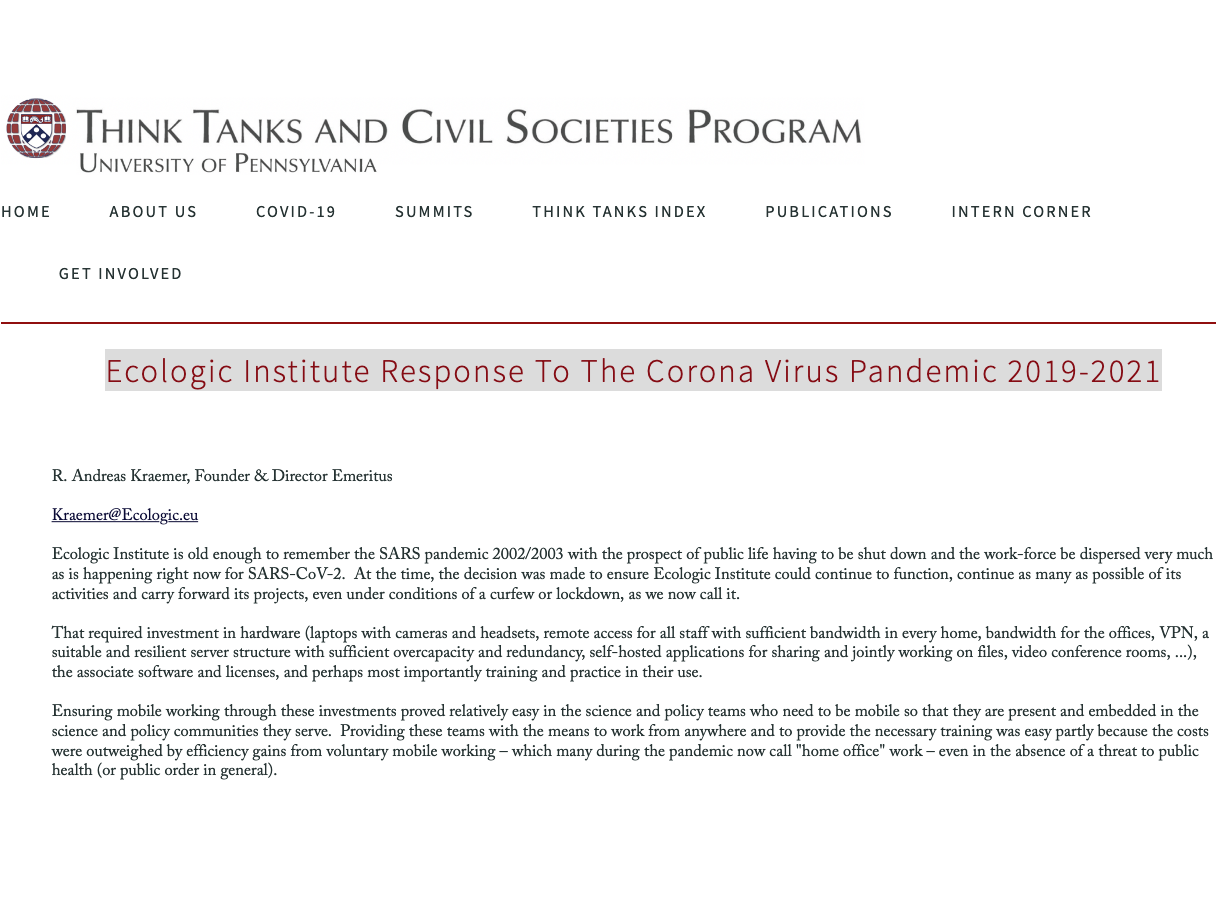Presentation:Speech
Presentation:Speech
Project
Publication:Document
Small-Scale Technologies and Business Models for Regional Bioeconomies
Joint Guidance Document for Stakeholders
Year
Read morePublication:Fact Sheet
Publication:Document
The Failed Europeanisation of Carbon Capture and Storage (CCS)
A Comparative Analysis of the Impact of Domestic Factors on Six CCS Demonstration Projects
Year
Read morePublication:Brochure
Unternehmensbeiträge zum Klimaschutz
Ergebnisse der Arbeitsgruppen des Dialogforums "Wirtschaft macht Klimaschutz"
Year
Read morePublication:Document
Publication:Document
The EU Farm to Fork Strategy: What needs to come next?
A first assessment of important steps for an ambitious implementation of the EU Farm to Fork Strategy
Year
Read morePublication:Article
Publication:Article
Presentation:Panel discussion
Publication:Article

